Sponsored
New 'Call of Duty' blasts last year's sales record (AP) : Technet |
- New 'Call of Duty' blasts last year's sales record (AP)
- Cisco's shortfall an omen for rest of tech world (AP)
- Companies yank cord on residential phone books (AP)
- More evidence of revamped Nexus phone spotted (Ben Patterson)
- Don’t hold your breath for stand-alone 3-D Blu-ray of ‘Avatar’ (Ben Patterson)
- Leaked Target Black Friday ad includes $298 40-inch TV, $99 Blu-ray player (Digital Trends)
- Remains of the Day: It’s on like Genghis Khan? (Macworld)
- Google (Investor's Business Daily)
- TV Execs: Social Media Influence Still Anecdotal (PC World)
- Which games would gaming icons bring to a deserted island? (Digital Trends)
- Facebook vs. Google and the Battle for Identity on the Web [OP-ED] (Mashable)
- Developer wants iPad to work like video game consoles, iPhones like controllers (Appolicious)
- Cloud Execs: Traditional Vendors Slow Adoption (PC World)
- Apple Updates Mac OS X and Mac OS X Server (NewsFactor)
- Zombie Virus Infecting Phones in China Costs You $300,000 a Day (PC World)
- Google Releases Data Cleanser (PC World)
- Newsweek and Daily Beast agree merger: report (Reuters)
| New 'Call of Duty' blasts last year's sales record (AP) Posted: 11 Nov 2010 04:25 PM PST NEW YORK – "Call of Duty: Black Ops" blasted entertainment records this week by raking in $360 million in its first 24 hours on sale, a dramatic and lucrative indication that video games have cemented their place as mainstream entertainment on a par with movies, books and music. For the hordes of devoted fans who waited at midnight Monday to get their hands on the military shooter, this is hardly a surprise. For them, popping the new "Call of Duty" into a game console is the equivalent of turning on the TV to watch the Super Bowl or sitting back with a tub of popcorn to watch the latest blockbuster movie. But while movies happen at you, video games allow the user to affect the story's outcome. That hands-on experience and interactions with other players fit the emerging social-media era where consumers demand a voice in whatever they do. Across two years, with a budget well in the tens of millions of dollars, the developers of "Black Ops" created a world that immerses players in Cold War-era battles with settings ranging from 1960s Cuba to Vietnam and the Soviet Union. Its intricate graphics and details — down to the gruesome sound a knife makes when pulled from an enemy's neck — are amplified in players' homes through big-screen TV sets and powerful speakers. In one mission, which takes place with John F. Kennedy in the White House before the 1961 Bay of Pigs invasion and the 1962 Cuban Missile Crisis, players must shoot their way through Havana to assassinate a young Fidel Castro. Cuba state-run media has leveled harsh criticism at the game, calling it "doubly perverse" by glorifying assassination and stimulating "sociopathic attitudes in North American children and adolescents." "What the United States couldn't accomplish in more than 50 years, they are now trying to do virtually," said an article on Cubadebate, a state-run news website. Though game developers see their creations as art, not everyone agrees. Last week, the U.S. Supreme Court heard arguments over a California law that seeks to ban the sale of ultra-violent video games to minors. Parents' groups and politicians say games should be regulated like firearms and tobacco rather than like books and movies, which are protected by the First Amendment. A ruling is expected next year. Many liken these games to movies — and it's an apt comparison. Along with the hyper-realistic cinematic scenery and surprise plot twists, there are well-known actors — including Gary Oldman, Ed Harris and Sam Worthington — lending their voices to the game's main characters. Also, the motion-capture technology used to track actors' bodies is the same that was used in "Avatar." Activision Blizzard Inc. sold 5.6 million units the day "Call of Duty" went on sale, according to the company. Its predecessor, "Call of Duty, Modern Warfare 2," sold 4.7 million copies in 24 hours to reap $310 million on its first day of sale last year. Within a week, it made $550 million. "Not too many years back it would have been unfathomable that the biggest entertainment launch would be a video game two years in a row," said Eric Hirshberg, CEO of Activision Publishing. No longer. Today, such games as "Call of Duty," "Grand Theft Auto" and "Halo" all fit into the blockbuster category, and with each sequel they only get bigger. Production budgets for these games rival those of big-screen movies, as does the marketing push behind them. "You are delivering not just a gaming experience but a cinematic experience as well," Hirshberg said. "The characters are emerging as the protagonists of the story." The video game audience has expanded considerably in the last five years, reaching women, young children and even senior centers. But the people who flock to "Call of Duty" and other shooters are still primarily young men, just not as young as some would think. The average U.S. game player is 34 years old, according to the Entertainment Software Association. A big part of the appeal of "Call of Duty" is its multiplayer feature, meaning gamers can fight against someone across the country or on the other side of the world. "Everyone thinks that games are these solitary things," said Patrick Markey, a Villanova University professor who studies video games. "But now, hooked up to the Internet, it's friends and strangers we are playing with." "Black Ops" went on sale Tuesday in North America and the U.K. It costs $60 and works on the Xbox 360 and PlayStation 3 gaming consoles, and PCs. With that cost, games have an easier time setting dollar sales records than much less expensive movies or music. The latest "Call of Duty" game broke records set by its predecessor a year ago. The $360 million in North American and U.K. sales on the first day is higher than any other form of entertainment — even beating box office sales of top movies in those markets over the entire opening weekend. The game is rated M for mature — meaning it's not meant for kids under 17. It's bloody, to be sure, but new media professor Charles Palmer says that's not the main appeal. "It's the challenge," said Palmer, who teaches at the Harrisburg University of Science and Technology. "It's one of those areas that thrills and excites people." Sports games, such as "Madden," from Electronic Arts, are also popular, as are music simulators such as "Guitar Hero." But shooters in the style of "Call of Duty" continue to be the most popular. "There is a DNA-level curiosity about and attraction to battle," Hirshberg said. "That has been a staple of the entertainment industry — movies, television, books and fiction — forever. And the same is true for video games. 'Call of Duty" has delivered perhaps the gold standard experience of battle." |
| Cisco's shortfall an omen for rest of tech world (AP) Posted: 11 Nov 2010 03:08 PM PST SAN FRANCISCO – A gloomy outlook from Cisco Systems Inc. is shaking some investors' faith in the strength of the technology industry's recovery. Corporations have loosened their purse strings after slashing their budgets. Some governments have poured money into stimulus-fueled technology projects. Consumers are starting to snap up cell phones and gadgets again after backing off in the past few quarters. But Cisco revealed severe slowdowns in spending by state and local governments in the U.S. and by governments in Japan and Europe. That has investors worried that other companies will show similar trends when they report their next earnings. Cisco is a soothsayer of sorts for the technology world because it is the world's No. 1 maker of computer networking equipment, and its quarterly results lag others' by a month, meaning it includes an extra month of sales that most other companies haven't reported yet. Cisco's stock got clobbered Thursday, and investors lopped off a sixth of Cisco's market value, annihilating $23 billion in shareholder wealth. The sell-off drove the tech-laden Nasdaq down, too. Shaw Wu, an analyst with Kaufman Bros., said Cisco's results raise concerns about the level of information-technology spending in the months ahead. "The economic environment is still very difficult," he said. "Unemployment remains high. That hasn't been solved." He added that "one quarter is too early to call a trend, but it definitely raises a red flag." Cisco's results Wednesday provided buzzkill for an industry that has become accustomed to signs that a strong, broad recovery in technology spending is under way. The market's reaction was so forceful because the trends Cisco has spotted contradict the sentiment expressed by other technology heavyweights. Many other companies have raised their guidance recently. Intel Corp., EMC Corp., Xerox Corp. and IBM Corp. all offered reassuring signs about their respective industries and painted the picture of a slow but steady rise in companies' willingness to pay for new computers, equipment and services. Then along came Cisco, whose networking products help manage the flow of Internet and other data traffic and are critical parts of the backbone of the Internet. Cisco is now calling for revenue for the November-January period to rise just 3 percent to 5 percent, less than half the growth rate that analysts expected. One reason for the shortfall in state and local government spending is that costs are being cut to balance budgets. That process has taken longer in government than in corporations, which clamp down on spending almost instantly when times get tough. Cisco also had some trouble selling to Internet services providers because of lingering constraints in their budgets for capital investments. The kinks there weren't as much of a surprise as the scale of the weakness in government spending, though. Jeff Kvaal, an analyst with Barclays Capital, wrote in a note to clients that Cisco's shares are likely to stay under pressure until it becomes clearer how much of its troubles are being caused by its losses in market share rather than macroeconomic problems — namely lowered spending by governments. He noted that Cisco's tone about public sector spending is a change from the company's message at a meeting with analysts in September. It's not surprising that governments are cutting their budgets given pressures to slash deficits. But the size of Cisco's exposure to the downturn, as well as the sudden emergence of state and local governments as key players with the ability to swing results for a company the size of Cisco, triggered widespread worry about other companies' exposure to the same pressures. Most companies don't break out how much business they get from state and local governments, compared with the federal government. It's generally lumped into a category of public sector spending, if it's broken out at all, so the effect on other companies might not be immediately clear when they report their results. Two technology heavyweights slated to report their earnings in the next few weeks are Dell Inc., which reports next Thursday, and Hewlett-Packard Co., which reports Nov. 22. Cisco shares fell $3.97, or 16 percent, to close Thursday at $20.52. Dell fell 56 cents, or 3.9 percent, to $13.93, and HP shares lost $1.06, or 2.4 percent, to $43.10. Shares in IBM, EMC and Xerox each fell by about 1 percent, while Intel rose nearly 1 percent to $21.21. A particular worry was Cisco's acknowledgement that orders from state governments in the U.S. have been cut nearly in half in the latest quarter compared with the previous one. Jayson Noland, an analyst with Robert W. Baird & Co., said he hadn't heard worries from Cisco resellers about the strength of those orders prior to Cisco's earnings report Wednesday for the fiscal first quarter. He noted that federal spending has remained strong, but that it now appears that states and municipalities are imposing the same kind of deep cuts that corporations imposed at the start of the recession. "When something goes wrong in the corporate world, they lock it up quickly," he said in an interview. "I don't feel like state and local governments really act until it's the 11th hour." The cuts are likely to spill over into other sectors beyond technology, he added. While some portion of Cisco's weaker-than-expected guidance can be chalked up to company-specific problems — such as apparent losses in market share for cable set-top boxes, which represents a small fraction of Cisco's total business — Noland said the results paint a troubling picture for other technology companies. "Cisco is big enough, and that miss was bad enough, that it's hard to argue that it's just company-specific," he said. |
| Companies yank cord on residential phone books (AP) Posted: 11 Nov 2010 11:06 AM PST RICHMOND, Va. – What's black and white and read all over? Not the white pages, which is why regulators have begun granting telecommunications companies the go-ahead to stop mass-printing residential phone books, a musty fixture of Americans' kitchen counters, refrigerator tops and junk drawers. In the past month alone, New York, Florida and Pennsylvania approved Verizon Communications Inc.'s request to quit distributing residential white pages. Residents in Virginia have until Nov. 19 to provide comments on a similar request pending with state regulators. [Related: Another farewell for the Sony Walkman] Telephone companies argue that most consumers now check the Internet rather than flip through pages when they want to reach out and touch someone. "Anybody who doesn't have access to some kind of online way to look things up now is probably too old to be able to read the print in the white pages anyway," joked Robert Thompson, a pop culture professor at Syracuse University. Phone companies note that eliminating residential white pages would reduce environmental impact by using less paper and ink. It also can't hurt their bottom lines to cut out the cost of a service that rarely gets used and generates little beyond nostalgia. The first telephone directory was issued in February 1878 — a single page that covered 50 customers in New Haven, Conn. That sheet grew into a book that became virtually a household appliance, listing numbers for neighbors, friends and colleagues, not to mention countless potential victims of prank calls. Fewer people rely on paper directories for a variety of reasons: more people rely solely on cell phones, whose numbers typically aren't included in the listings; more listings are available online; and mobile phones and caller ID systems on land lines can store a large number of frequently called numbers. The number of traditional land lines has been declining for the better part of the decade, and now are being disconnected at a rate of nearly 10 percent each year, according to company financial reports. And a survey conducted for SuperMedia Inc. by Gallup shows that between 2005 and 2008, the percentage of households relying on stand-alone residential white pages fell from 25 percent to 11 percent. Dallas-based SuperMedia, which publishes Verizon's telephone directories, has instead focused on its yellow pages and paid advertising listings, and their online equivalents. Unlike the residential white pages, the business directories printed on yellow pages are doing fine, at least according to the Yellow Pages Association. The industry trade group claims more half the people in the U.S. still let their fingers do the walking every month, and that 550 million residential and business directories are still printed every year. As for the white pages, Steve Keschl can attest to the declining interest. As a doorman at an Upper East Side condo building since 1960, the 84-year-old has watched tenants' fading reaction to the annual delivery of New York City's white pages book — which incidentally weighs in around 3 pounds, 9 ounces, or a little more than a dozen iPhones. These days, the books "sit here pretty long," said Keschl, who added that even he rarely uses the directory anymore. "Sometimes they take them, sometimes they don't." While New York and other cities still have stand-alone white pages, many of the thousands of phone directories across the country include residential white pages, yellow business listings and blue government pages. Where they no longer have to print the white pages, publishers will simply slim down their combined books. Verizon and AT&T Inc. — the two largest land line players — and others have requested exemptions from state requirements to distribute residential phone books in paper form. The directories would be available on the Internet, printed upon request or provided on CD. "You probably have a better chance of finding a name quicker if you can just search for it in a database than try to look it up in the white pages," said Link Hoewing, Verizon's vice president of Internet and technology policy. Since 2007, states that have granted permission to quit printing residential listings or that have requests pending include: Alabama, Delaware, Florida, Georgia, Indiana, Missouri, New Jersey, New York, North Carolina, Ohio, Oklahoma, Pennsylvania, Texas, Virginia and Wisconsin. New York-based Verizon's plan is to seek regulatory approval in all 12 states where it operates land line telephone service. In total, the savings could top 17,000 tons of paper annually throughout Verizon's service areas, the company said. The company and its printer, which uses the Verizon brand name in lieu of payment for publishing the white pages, would not provide any estimates on the cost of printing the directories or how much money would be saved by discontinuing them. [Related: 7 hot careers that pay well] Regulators in New York approved Verizon's request Oct. 14. There, the company estimates it will save about 3,575 tons of paper per year and conserve the energy associated with printing, binding and distributing the directories. The company's August request with Virginia regulators is estimated to save about 1,640 tons of paper annually. Verizon plans to continue to deliver directories that contain business and governmental listings along with the consumer guide information provided in white pages directories, but the residential listings would only be available by request. Dallas-based AT&T did not respond to repeated messages from The Associated Press seeking comment for this story. According to filings with state regulators, AT&T said in places where it has been permitted to provide the white pages on demand, only about 2 percent of customers have requested a copy. The residential phone book "no longer provides the same utility it once did," AT&T told Missouri regulators, who approved the company's petition for the state's larger metropolitan areas. "The vast majority of customers neither need nor use these often quite large, bound paper directories." If the white pages are nearing their end, then Emily Goodmann hopes the directories would be archived for historical, genealogical or sociological purposes. "The telephone directory stands as the original sort of information network that not only worked as kind of a social network in a sense, but it served as one of the first information resources," said Goodmann, a doctoral student at Northwestern University who is writing her dissertation on the history of phone books as information technology. "It's sort of heartbreaking ... even though these books are essentially made to be destroyed." ___ Associated Press writers Samantha Gross and Peter Svensson in New York contributed to this report. ___ Online: AT&T: http://www.corp.att.com/directory/ Verizon: http://www.verizon.com/whitepages Yellow Pages Association: http://www.ypassociation.org/ Other popular Yahoo! stories: |
| More evidence of revamped Nexus phone spotted (Ben Patterson) Posted: 11 Nov 2010 11:49 AM PST Those on the lookout for the rumored follow-up to Google's Nexus One handset got fresh grist for the mill Thursday: Best Buy posted—and promptly pulled—a link to the "Nexus S" on its website, and a purported photo of the phone leaked just a few hours later. Let the sleuthing begin! Exhibit A: The errant Best Buy link, a screenshot of which was snapped by the alert bloggers at Phandroid before the incriminating URL was pulled offline. The promo text for the now-yanked link read: "Pure Google—The Nexus S. Available only a Best Buy this holiday season." A broken image next to the "Pre-order now" link (which was itself broken) contained "alt" text that said "Nexus S for T Mobile," leading Phandroid to conclude that the so-called Nexus S could be on tap for T-Mobileâ€"the same carrier that took on the original Nexus One at the beginning of the year. Not long after the first leak, Engadget found something fishy on Best Buy's Mobile Magazine site: a promo image featuring an as-yet-unannounced Android phone with a front-facing camera, along with some interface details hinting that the phone is running on Android 2.3 "Gingerbread"—a version of Android that isn't even out yet. Engadget even unearthed an FCC filing for what it believes to be the mystery device, before finally dredging up the coup de grace: a snapshot of what Engadget claims is the Nexus S itself, albeit with a dark screen. The Nexus chatter began in earnest late last month, after bloggers for Android and Me claimed they'd heard word that a Samsung-built sequel to the original Nexus One phone was in the works. Gizmodo added fuel to the fire by publishing hearsay hands-on details of the new Nexus. Gizmodo's spy claimed that the phone resembled Samsung's recent line of Galaxy S handsets, complete with a 4-inch Super AMOLED display and a front-facing camera. A few bloggers pegged a Samsung mobile event this past Monday in New York for a possible Nexus S coming-out party, but the only handset that was revealed at the briefing was the dual-display Samsung Continuum for Verizon. Released back in January, the original, HTC-manufactured Nexus One was touted as a "pure" Google phone built without interference from carriers. Google hoped to break the mold with the Nexus One by selling the handset itself online, but Google ended the experiment after consumers failed to cozy up to the device. That said, the Nexus One ended up being a hit with developers looking to test their Android-based applications on the phone. So, is there in fact a new Nexus S developer phone to go along with the release of Android 2.3 Gingerbread (which could be just days away)? Stay tuned.
— Ben Patterson is a technology writer for Yahoo! News. |
| Don’t hold your breath for stand-alone 3-D Blu-ray of ‘Avatar’ (Ben Patterson) Posted: 11 Nov 2010 09:45 AM PST Almost a year after its theatrical debut, "Avatar" is due to arrive December 1 as a 3-D Blu-ray disc, but only if you buy a Panasonic 3-D TV to go along with it—and according to the movie's producer, it could be a long time before you can order the 3-D Blu-ray of James Cameron's blockbuster on its own. "Avatar" producer Jon Landau says that the 3-D Blu-ray for "Avatar" will eventually become available as a stand-alone disc, but only once there are more viewers out there with 3-D TVs in their living rooms. "We were ahead of the curve on DVD with 'Titanic' and we don't want to make that mistake again," Landau recently told HollywoodinHiDef.com owner Scott Hettrick. Landau added that when "Titanic" was initially released on DVD, in 1999, DVD players were only in about 500,000 U.S. households, resulting in "disappointing" sales. There's already a best-selling Blu-ray disc of "Avatar" on the market, and the predictable "extended collector's edition" (chock-full of extras missing from the initial bare-bones release) is due next week—but those discs are the 2-D version of the movie. Of course, 3-D in your den isn't just a matter of having a 3-D Blu-ray player—or a PlayStation 3, now that the console's been updated to play 3-D Blu-ray discs. You'll also need a 3-D-capable TV set (not to mention pricey 3-D glasses), and according to industry analysts, sales have been (unsurprisingly) on the slow side. Bundling the 3-D Blu-ray of "Avatar" with Panasonic 3-D TVs—and only Panasonic 3-D TVs, given that this is an exclusive deal—could be a "great way" to jump-start the number of 3-D TV sets in U.S. homes, Landau argues. But as Hollywood in HiDef's Hettrick points out, there's a "chicken-or-egg" phenomenon at work here. After all, part of the reason that 3-D TV sales have been so slow is that there's so little 3-D content to watch. Indeed, home video executives are touting next Tuesday as "Blu-ray 3-D Day" because 10 more 3-D Blu-ray discs—including "Clash of the Titans," "The Polar Express," "A Christmas Carol" and IMAX titles like "Deep Sea 3D" and "Space Station 3D"—will be hitting the market (along with one racy 3-D video, "Erotek Dimensions 3D"), Variety reports. By the end of the year, the number of 3-D Blu-ray movies available is expected to hit a grant total of ... 24, or 36 if you count the movies that are bundled with TVs (like "Avatar"). So, when will James Cameron & Co. decide that there are enough 3-D TV and Blu-ray owners out there to justify a stand-alone release of the 3-D "Avatar" Blu-ray? Hard to say, although Hettrick notes that Panasonic's exclusivity deal with 20th Century Fox might last as long as a year.
— Ben Patterson is a technology writer for Yahoo! News. |
| Leaked Target Black Friday ad includes $298 40-inch TV, $99 Blu-ray player (Digital Trends) Posted: 11 Nov 2010 05:56 PM PST
If you're brave enough face the crowds, the retailer will be offering hugely discounted HDTVs and electronics. The chain is offering other sales items as well, but is rumored to be focusing the more outstanding deals on tech gifts. Here are some of the specifics the leaked memo reportedly mentions:
|
| Remains of the Day: It’s on like Genghis Khan? (Macworld) Posted: 11 Nov 2010 04:30 PM PST The New York Times gives its stamp of approval to e-books, Steve Jobs dials 'D' for 'developer,' and Nintendo trademarks a classic catchphrase. The remainders for Thursday, November 11, 2010 are the first links of the rest of your life. New York Times to launch bestseller list for e-books in early 2011 (Engadget) Starting next year, The New York Times will begin publishing a bestseller list for e-books, or, as I prefer to think of it, "titles about to be most pirated." How to get AirPrint working on Mac OS 10.6.5 (9 to 5 Mac) If you're feeling brave, 9 to 5 Mac has instructions for supposedly enabling the missing printer-sharing part of AirPrint, using files from a pre-release of 10.6.5. You know, if you're really desperate to kill trees. A zombie keyboard, an app-store rejection, a call from Steve Jobs and the Economy-for-iPad app (Cascade Software Corporation) Steve Jobs calls an iOS app developer out of the blue after the guy's app is rejected for using a private API to work around a bug. Frankly, if it were me, I would have insisted upon verifying Steve's identity with a little FaceTime. Rare original 'Apple-1' computer sold by Steve Jobs from his parents' garage goes on sale for £150,000 (Daily Mail) Speaking of Jobs, you could own one of the very first Apple computers sold from his very own parents' garage. All you need is $241,815 to buy it at auction. Then you can put it next to your iPhone on your desk and weep at how much more powerful it is. Nintendo seeks to trademark 'On like Donkey Kong' (CNN) Fine, but I'm filing a trademark for "You're going to be sorry-o like Mario." |
| Google (Investor's Business Daily) Posted: 11 Nov 2010 03:33 PM PST Google (NMS:GOOG) was started with an outperform rating at Macquarie Equities, which said its search ad business will grow above industry rates, with emerging mobile services beginning to show potential. |
| TV Execs: Social Media Influence Still Anecdotal (PC World) Posted: 11 Nov 2010 05:40 PM PST While the television industry now considers social media involvement a necessity, the benefits of establishing a presence on Twitter, Facebook and other services haven't really been shown to include improved show ratings, according to a panel of television marketing executives at the Digital Hollywood conference in New York. Nonetheless, social media seems to generate buzz for some television shows and may be valuable in non-quantifiable ways. And, at least for a few of the panelists, it also raises questions about the validity of traditional television ratings systems. "If we can't actually create a direct correlation between social TV and ratings, we see what it is doing in a lot of other ways,"said Gayle Weiswasser, vice president of social media for the Discovery Channel. "Time will tell what the statistical impact is, but anecdotally it's pretty strong." People tend to see social media as a conduit for letting television networks know the shows they like. But social network buzz around a show thus far seems to have little bearing on the show's Nielsen ratings for television, said Christy Tanner, the general manager of TVguide.com. And in some cases, listening too closely to social media buzz can be harmful, suggested Michael Learmonth, the digital editor of Ad Age magazine. He pointed to how CBS brought back a show it had formerly cancelled, called "Jericho," based on the fervent response to its cancellation on the message boards, only to have the show not do well on its second outing. "That was a case of them listening a little too hard to a rabid minority," he said. The most prominent rating service, Nielsen Media Research, offers a list of the most widely watched television shows in the U.S., gathering data from a statistical sample of U.S. homes. The Nielsen ratings are widely used among television networks as the definitive guide to what shows are popular. They also influence advertising rates. "We have all kinds of data points on popularity now that are divergent from what Nielsen would say the top shows are in America," Tanner said. The most popular show pages on the TVGuide.com site rarely correspond with Nielsen's top-rated shows. For instance, the most popular pages on TVGuide.com are "Criminal Minds" and "The Vampire Diaries," neither of which are strong showers on the Nielsen ratings. "I can't say what I make of it, but it is a fascinating set of data," she said. Whatever the merits of social media for the television industry, the networks consider it a necessity. Within the past few years almost every network has set up an office of some sort for social media, Tanner said. She noted that in August 2010, TVGuide.com asked 10,000 of its users if they updated their Facebook status while watching television. About three-quarters said they did, up from 39 percent a year ago. "It shows a big shift in behavior," Tanner said. A network must have a social media strategy of some sort for a new show, said Chad Stoller, an executive vice president with Batten, Barton, Durstine & Osborn (BBDO), an advertising agency that counts HBO among its clients. If a show is any good then some people will like it and other people will not like it, and conversation between the two camps will ensue in some Internet outlet. In other words, the show will have social media presence, with or without the network's help. "You always have a community that you're going to touch and you want to warm that community up," he said. For HBO's Blu-ray release of season two of the "True Blood" vampire show, BBDO built a downloadable app that could, with the user's permission, temporarily take over a user's Facebook account, changing the user's profile photo to one of a vampire and automatically posting scenes on the user's wall that the user watched more than once. Whatever its influence on Nielsen, social networking has shown to have an effect in other, perhaps more indirect ways. For the second season of the show "The Real Housewives of New Jersey," the Bravo Network streamed live video from a premier party through the UStream video service. "It became their biggest television premier event on UStream, and it was also our biggest Monday night premier," said Mari Ghuneim, a vice president of digital media for the Brave cable channel. The social media impact seems to work best for quirky shows with a small but devoted audience, rather than the popular shows aimed at the large audiences, said Greg March, director of digital media for Wieden+Kennedy. But perhaps social media is changing altogether the notion of what is a massively popular show and what is a niche show. "There is no possible way that Nielsen ratings are truly capturing what people are watching on television," Tanner said. "The measurement systems we have in place are seriously inadequate." Joab Jackson covers enterprise software and general technology breaking news for The IDG News Service. Follow Joab on Twitter at @Joab_Jackson. Joab's e-mail address is Joab_Jackson@idg.com |
| Which games would gaming icons bring to a deserted island? (Digital Trends) Posted: 11 Nov 2010 08:20 PM PST Many a music fan has played this game – you’re sitting around with your friends at a pub or perhaps on a long road trip – and the conversation turns to what three albums you’d bring to a deserted island. Well, what about video games? Yes, assuming there’s a console or computer, television – oh, and a little ‘ol thing called electricity – what three games of yesteryear or today would you toss in your suitcase (presuming, of course, you knew you were going there)? Well, Digital Trends thought it would be interesting if we turned to a handful of video game luminaries of our time to ask what three titles they’d bring to a deserted isle, and why. We caught up with eight famous game designers to find out their picks. Here are their responses – in their own words.
Warren SpectorCliff BleszinskiTodd HowardTim WillitsWill WrightAlex RigopulosEd BoonShinji Mikami
Also let us know in the comments section which three games you would pick if stranded on a deserted island.
Warren Spector, Junction Point StudiosBest known for: System Shock, Deus Ex, Disney Epic Mickey
The scary thing is, I think about this a lot. 1. Number one would be Nintendo’s The Legend of Zelda: Link to the Past for the NES [Nintendo Entertainment System]. While it plays the same way exactly the same way every time you play, it’s a game I play every year to refresh myself and cleanse my palette, as it’s an elegant little jewel of a game. Because I play it over and over again so I might as well bring it to the island. 2. Second game would probably be Diablo 2, because it’s still on my hard drive – that’s rare for a game of that vintage and yes, I still play it. This influential game is different every time you play, provides replayability in a very thrilling package, and it defines quality in every way. 3. My third game would be Tetris because infinite replayability — we’ve all played it on every platform that has ever existed and it’s still so state of the art. There’s lots of imitators, so why not the original. If you’re going to be stuck on an island, Tetris would provide endless amount of fun, which is what you need. Oh, and if there’s an Internet connection, I’d bring World of Warcraft as I’d want a MMO [massively multiplayer online game], even though I’m not an MMO guy, as it means I’ve got contact with people.
Jump to other game designers:Warren SpectorCliff BleszinskiTodd HowardTim WillitsWill WrightAlex RigopulosEd BoonShinji Mikami
Cliff Bleszinski (“CliffyB”), Epic GamesBest known for Unreal franchise, Gears of War
1. Tetris, because it allows me to backchannel solve all of my day to day problems, and it’s infinitely replayable. 2. Borderlands, because it’s got nearly an unlimited amount of guns. 3. And, shameless plug, our upcoming game Bulletstorm, because you can toy with your enemies in a seemingly endless manner.
Jump to other game designers:Warren SpectorCliff BleszinskiTodd HowardTim WillitsWill WrightAlex RigopulosEd BoonShinji Mikami
Todd Howard, Bethesda Game StudiosBest known for The Elder Scrolls series, Fallout 3
1. Civilization V: Like the other games I’ll mention, you can play this game forever. Almost unlimited depth, A.I., and ways you can play. Need my strategy fix. 2. Gran Turismo 5: My hope is this gets released before I hit the island. Also a huge game with excellent replay value. Feeds my love for sports, competition, and cars. 3. World of Warcraft: Not sure if I have the Internet here, but figure this is the best way to have some human contact. Again, another huge deep amazing game that feeds my desire for a fantasy RPG.
Jump to other game designers:Warren SpectorCliff BleszinskiTodd HowardTim WillitsWill WrightAlex RigopulosEd BoonShinji Mikami
Tim Willits, id SoftwareBest known for Doom and Quake series
1. World of Warcraft: With 8 million people online I wouldn’t feel so alone. The game has so much depth and replayability that it truly can entertain me for a long, long time. The game has been around for years and it just keeps going. It is “the” definition of what a service based MMO should be and it is the high water mark for every other MMO. With each new expansion the game just keeps growing and growing. I can think of very little else I would need. 2. Quake 3: Quake 3 by itself is such a simple but pure game to play. It only takes a few minutes to learn but truly takes a lifetime to master. The precise skill development needed to achieve greatest is no easy task. I’ve seen professional gamers practice hours a day for months only to get out-matched by someone else. Another great aspect of Quake 3 is the engine, which has powered some of the biggest titles in history (Medal of Honor, Call of Duty, etc.). The flexibility of what is possible in the engine is limitless. Just making mods for the core game could entertain me for years, developing an entirely new game on a deserted island would actually be fun! 3. Fallout 3: One of the best single player games ever made. With its depth and gameplay you really can’t go wrong with this. The game world is so big and there is so much to do that by the time I get finished playing it I’d probably be discovered…
Jump to other game designers:Warren SpectorCliff BleszinskiTodd HowardTim WillitsWill WrightAlex RigopulosEd BoonShinji Mikami
Will Wright, Stupid Fun ClubBest known for The Sims series, SimCity, Spore
[Editor's note: Will, one of the most successful game designers of our time, wanted to participate in this story but was so busy he only had time to jot down a couple of words. He apologizes for the brevity but here are his picks, nonetheless.] 1. Advance Wars: It’s relaxing to play. 2. Battlefield 1942: It’s funny. Makes you laugh. [Er, ok – Ed.] 3. A good computerized game of Go: It makes you think.
Jump to other game designers:Warren SpectorCliff BleszinskiTodd HowardTim WillitsWill WrightAlex RigopulosEd BoonShinji Mikami
Alex Rigopulos, HarmonixBest known for Guitar Hero, Rock Band
1. Kinect Adventures with the optional Game Boat accessory from Atomic. Though it's not supposed to be used as a real boat, it seems like a good place to start. 2. Any Rock Band bundle or standlone drum peripheral, so that I would have two sticks to rub together to make a fire. 3. Rock Band mobile, specifically a new version that designed to be compatible with all leading models of satellite phones. Alternate: Myst. Because what's better when you're trapped on an island than to play a game where you're trapped on an island!
Jump to other game designers:Warren SpectorCliff BleszinskiTodd HowardTim WillitsWill WrightAlex RigopulosEd BoonShinji Mikami
Ed Boon, NetherRealm Studios (formerly Midway Games)Best known for Mortal Kombat series
I don't know why I would be on a deserted island but if for some reason I was, the three games I'd take with me would be games that focus more on “high score” than a linear episodic adventure. With that in mind, I would bring along… 1. Millipede – This game was a sequel to an Atari arcade game called Centipede. While it didn't sell more than Centipede, I thought it was better in every way. So fast, frenetic and non-stop that to this day it's one of my favorite arcade games from the 80's. No co-op, no online, just the kind of game where you keep trying to beat your personal best high score and nobody else is involved but you. A true classic. 2. Robotron – I would choose this one for the same reasons I picked Millipede. Robotron is the mother of all adrenaline games, one of the few were you end up sweating while you play, and was also an arcade game. Trying to beat your personal best high score is what this game is all about and to this day I've yet to become bored with it – and it was released in the early eighties !! 3. Grand Theft Auto 4 – I never even came close to finishing any of the GTA games, so what better situation would allow me the time to finish a massive game like GTA4 than to be on a deserted island! As a matter of fact, if I was able to, I'd probably bring all the GTA games with me so I could start from the beginning and go all the way through to the fourth one. These games are put together so well it's just ridiculous and I can only imagine the amount of work that went into making them.
Jump to other game designers:Warren SpectorCliff BleszinskiTodd HowardTim WillitsWill WrightAlex RigopulosEd BoonShinji Mikami
Shinji Mikami, Tango GameworksBest known for Resident Evil, Devil May Cry, Viewtiful Joe and Ace Attorney
On a deserted island, it’s obviously important that the ability to play for a long time is important. I excluded online games because I figured it didn’t match the theme of a deserted island. 1. God Hand — Apologies for it being my own game. But, not having played the game for a while, I have become a little rusty. Now I can re-train myself from the beginning. 2. Family Circuit — This game also is a game that is worthwhile to master. When I become bored of life on a deserted island I can enjoy a thrilling race battle and bring a bit of balance to my life. Should be fun! 3. Derby Stallion — I don’t think it was released outside of Japan. This is a very addictive game; so addictive that I have forbidden myself from playing it in real life.
Jump to other game designers:Warren SpectorCliff BleszinskiTodd HowardTim WillitsWill WrightAlex RigopulosEd BoonShinji Mikami |
| Facebook vs. Google and the Battle for Identity on the Web [OP-ED] (Mashable) Posted: 11 Nov 2010 02:30 PM PST The Social Analyst is a column by Mashable Co-Editor Ben Parr, where he digs into social media trends and how they are affecting companies in the space. Facebook and Google are waging a bitter battle over data portability and the control of your identity on the web. Unfortunately, it's a battle in which nobody will emerge as the victor, certainly not the millions of users who are now caught in the crossfire. Last week, Google changed its Terms of Service so that anybody utilizing its Contacts API is required to reciprocate by exporting its contacts back to Google. In other words, if a company or social network wants to let users import their Gmail friends so their users can find their friends, then it has to allow for the same type of importing. For most companies, this isn't a problem, but there is a big company that doesn't offer reciprocity: Facebook. The social network doesn't allow Google users to import their Facebook contacts for products like Gmail, Buzz or Orkut. Thus, Google blocked Facebook's access to its Contacts API. That's when things got interesting. Following Google's decision to deny Facebook API access, Facebook decided to circumvent Google by giving users an easy option to download their Gmail contacts and then upload them to Facebook. As AOL's TechCrunch notes, it's essentially Facebook's way of telling the search giant to go to hell.
The Google vs. Facebook Battle
Google and Facebook's battle isn't simply about any one company blocking access to data or acting juvenile; the stakes are nothing less than complete dominance of the web. As we've noted in the past, Google and Facebook are locked in a heated battle to become your default social profile. Whichever company controls identity on the web, controls the web. Currently Facebook and Google dominate third-party sign-in options on the web, but Facebook's growth as an identity platform has been ascending; more than 10,000 website integrate with Facebook every day, thanks in no small part to the explosive growth of the Facebook Open Graph. Can you believe that Facebook's "Like" button, now ubiquitous across the web, launched not even seven months ago? Facebook has become so aggressive that Google has reacted with some big social moves of its own. It recently acquired Slide and Ångströ, reportedly for Google Me, the search giant's rumored next attempt at competing with social networks. However, rumors are no longer focused on Google building a social network; many now believe the company is likely building more social features into all of its products. Regardless of what exactly Google is building, it's clear that Google is building something. And the reason they're reacting so feverishly is because the world's largest social network is increasing its control of the web. Google's can't afford for Facebook to control identity on the web, which is what prompted the change to the search giant's Terms of Service in the first place.
The Battle Over Identity: Nobody Wins
"Facebook has been a one-way beneficiary of data portability for far too long," DataPortability Project co-founder Chris Saad told me. "Google asking for reciprocity from equal peers on the Internet is a perfectly reasonable, if not overdue, move." In this debate, I believe Google has every legitimate reason to ask for reciprocity; why should Facebook benefit from Google's Contacts API if Google can't get the same benefit? More importantly, why should Google give any ground to its new rival? Yet in the end, it's not Facebook or Google that will suffer for this battle over identity on the web. It's the users that will lose out. Facebook won't be using Gmail contacts anytime soon and don't hold your breath for Facebook Connect on Google. These moves are to be expected from two companies that are essentially at war, but it's the average user that has to take the extra steps to upload his or her Gmail contacts into Facebook to get started that is really impacted. It's about the millions of users that won't get the benefits of Facebook integration in Google or Gmail. It's about a war that is only going to get uglier. In a few years, the lines will be drawn between Facebook and its allies and Google (and whoever is willing to join it). Digital walls to data portability will go up if companies are forced to choose sides. If things keep going in the direction they are headed now, that is the likely outcome. Image courtesy of Flickr, KatB Photography |
| Developer wants iPad to work like video game consoles, iPhones like controllers (Appolicious) Posted: 11 Nov 2010 11:35 AM PST |
| Cloud Execs: Traditional Vendors Slow Adoption (PC World) Posted: 11 Nov 2010 05:30 PM PST A group of cloud providers blamed traditional hardware and software companies for their role in discouraging cloud adoption, pointing fingers at Oracle's Mark Hurd, who spoke earlier here. At the FireGlobal conference in Seattle on Thursday, Hurd said that he doesn't know what the word "cloud" means. Such comments are designed to slow cloud adoption, said Brian Bershad, director of research and development for Google. "There are all kinds of ways to introduce uncertainty in customers' minds," he said. The biggest threat to how fast the adoption of the cloud happens is the uncertainty and confusion generated by people who don't like the answer, he said. Hurd also talked about Oracle's move toward more vertically integrated hardware and software. Vertically integrated products result in the complete opposite of the simplicity and lower cost that cloud services hope to offer, said Javier Soltero, CTO of VMware. "None of those things come to mind when you think of Oracle," he said. Some companies that supply infrastructure used in data centers by cloud providers may also feel threatened by cloud services, said Chris Drumgoole, senior vice president at Terremark. In the past, a server company might sell one server to each of four large companies. "Now there's one customer -- me -- buying one server. A lot of people don't like that," he said. Regulations are another big roadblock to cloud adoption, the speakers said. The government needs to improve compliance rules that relate to cloud services and make them common at least across the U.S. states, said Yousef Khalidi, distinguished engineer at Microsoft. That lack of consistent laws across state lines has a significant impact, Soltero said. "It's a non-technical obstacle, a purely regulatory obstacle that prevents all kinds of very interesting apps in the cloud," he said. That said, the speakers find that some companies are using compliance as an excuse not to use cloud services. Terremark handles government classified information, yet some companies with far less stringent requirements believe they can't use its services due to regulations. "There's this perception issue that gets in the way more than reality," Drumgoole said. Nancy Gohring covers mobile phones and cloud computing for The IDG News Service. Follow Nancy on Twitter at @idgnancy. Nancy's e-mail address is Nancy_Gohring@idg.com |
| Apple Updates Mac OS X and Mac OS X Server (NewsFactor) Posted: 11 Nov 2010 01:49 PM PST Apple issued updates Wednesday for Mac OS X and Mac OS X Server. The version 10.6.5 updates, the company said, are recommended for all users running Mac OS X Snow Leopard or Snow Leopard Server. They include general fixes to improve stability, compatibility and security. The "combo" package for Mac OS X improves reliability with Microsoft Exchange servers, addresses the performance of some image-processing functions in iPhoto and Aperture, increases the stability and performance of graphics applications and games, and resolves a delay issue between print jobs. There is also a fix that addresses an issue for some Hewlett-Packard printers when connected to an AirPort Extreme. Address Book To Active Directory The update also addresses a variety of relatively minor issues. These include resolving a bug that occurs when dragging contacts from the Address Book to iCal, and one that causes the Dock to not automatically hide when an item is dragged from a stack. On some occasions, Wikipedia information does not display correctly in Dictionary, and that is addressed as well. The update also improves the performance of MainStage on certain Mac systems, resolves spacing issues with OpenType fonts, improves reliability with some Bluetooth Braille displays, and resolves a VoiceOver issue when browsing some web sites with Safari 5. Other improvements include enhancing Bluetooth pairing with Magic Trackpad, resolving performance issues with third-party displays that use InstaPort technology, adding SSL support for transferring files with iDisk, and resolution of an issue when opening four-up Photo Booth pictures in Preview. Keyboard responsiveness issues in the Dock when Spaces are turned on is also improved, as is an issue of syncing Address Book with Google. Performance issues for users bound to an Active Directory domain and the reliability of Ethernet and Fibre Channel connections are also addressed. Security Fixes, Server Update The combo update also includes several dozen security updates, including ones in which a remote attacker could cause AFP Server to unexpectedly shut down or execute arbitrary code. Multiple vulnerabilities on Apache 2.2.14, the Flash Player plug-in, gzip, "maliciously crafted" images, MySQL, PHP 5.3.2 and 5.2.12, and the Safari RSS are also fixed. A large number of the security-related updates deal with Flash, which would seem to support one aspect of Apple's continuing battle against the use of Adobe's software on its mobile devices. The OS X Server update includes general operating-system fixes, as well as specific fixes for such bugs as problems with name queries in Web Calendar, issues with the setup of Podcast Producer when bound to an Active Directory Server, and problems with Podcast Capture always storing passwords in a key chain. Apple noted that the size of the update from Software Update may vary from computer to computer, and some updates may need to be installed before others. |
| Zombie Virus Infecting Phones in China Costs You $300,000 a Day (PC World) Posted: 11 Nov 2010 02:30 PM PST A virus masquerading as an antivirus application (how's that for irony?) has been infecting countless mobile phones in China. The virus lets hackers take control of the phone who then spam the phone's entire address with links that allow the virus to spread to even more phones. Is antivirus software up to the task of detecting bogus applications which send out spam as unwitting smartphone owners stand by oblivious to the nefarious activities their phones are up to? According to Shanghai Daily, at least ten other applications similar to the one containing this zombie virus have been detected since September, and for some of these viruses, security software won't detect anything wrong with the phone. Even worse? The software company behind the original antivirus app insists that they were not behind the badware infecting at least a million Chinese phones. For most viruses, they just propagate via clicks and the worst thing that happens is that you have to run some antivirus software. But since these are mobile phones we're talking about, this zombie software is costing phone owners a pretty penny, about $300,000 per day, adding to the nasty factor of this bit of malware. What can you do to avoid a virus like this while traveling? Don't open suspicious links in text messages, even if they're from someone you know. Get pre-paid phone plans so that if your SIM is taken over by a remote hacker, there'll be a fixed number of messages sent before you run out of cash on your account. [Shanghai Daily News via Engadget] Follow Alessondra Springmann on Twitter. |
| Google Releases Data Cleanser (PC World) Posted: 11 Nov 2010 09:50 AM PST Google has updated and re-released open-source software for cleaning, analyzing and transforming data sets, now called Google Refine. The software, originally called Freebase Gridworks, came with Metaweb, a company Google purchased in July. Google Refine is a collection of tools that could come in handy when wrangling useful information from a data set, particularly ones that have data inconsistencies. This desktop application can, for instance, find all the variant spellings of a word in a data set and replace them with the appropriate term. This process, called normalization, is nothing new. But normalizing data usually requires writing code that is specific to one data set, noted Christopher Groskopf, a developer for the Chicago Tribune. "The genius of Gridworks is that it is generic enough to work for a wide variety of data sets without the need to write any code at all. Even better the resulting operations are portable, so the process used to clean up 2009′s data can be repeated for 2010," Groskopf wrote in a blog post. The software contains a number of other tools as well. It includes an expression language that can be used to analyze a set of data. Filters can be used to isolate subsets of data, which then can be analyzed or changed through a set of transform commands. The software works with plain text files, the data in which can be split into different columns by the use of commas. Results can exported back out in the JSON (JavaScript Object Notation) format, which can then be easily transformed into HTML tables or other formats. The software can work with up to a few hundred thousand rows per data set, depending on the user's computer memory. And unlike most spreadsheet software, this software can interactively transform large subsets of data, the company asserted. Google said this week that it has added several new features to the software, officially called Google Refine 2.0, including the ability to link records to other databases, and a number of new transformation commands and expressions. The non-profit government watchdog organization ProPublica has used this software to aggregate data from seven different data sets to show how pharmaceutical companies pay doctors to recommend certain medications. Joab Jackson covers enterprise software and general technology breaking news for The IDG News Service. Follow Joab on Twitter at @Joab_Jackson. Joab's e-mail address is Joab_Jackson@idg.com |
| Newsweek and Daily Beast agree merger: report (Reuters) Posted: 11 Nov 2010 08:01 PM PST |
| You are subscribed to email updates from Yahoo Tech News To stop receiving these emails, you may unsubscribe now. | Email delivery powered by Google |
| Google Inc., 20 West Kinzie, Chicago IL USA 60610 | |





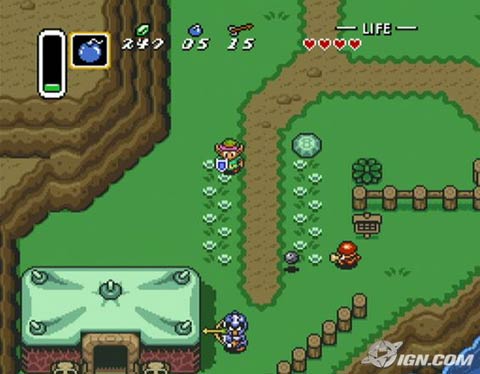
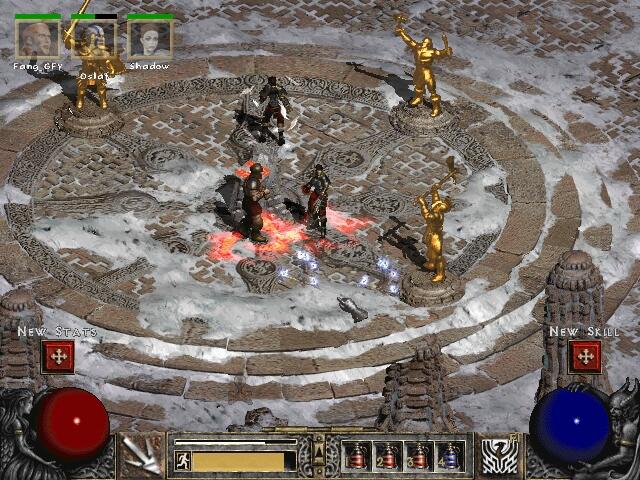




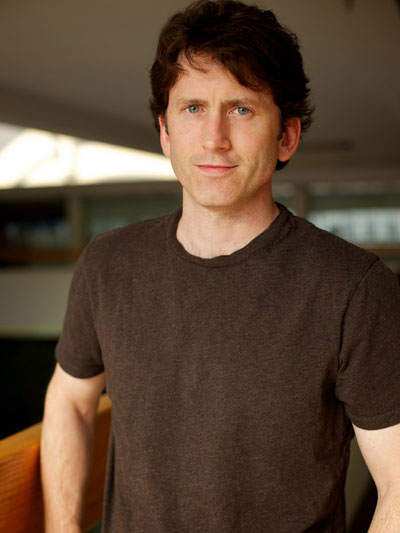




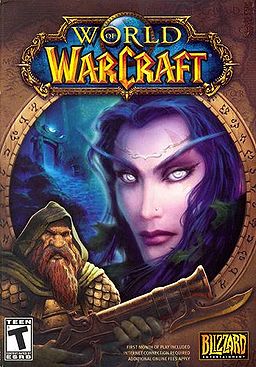









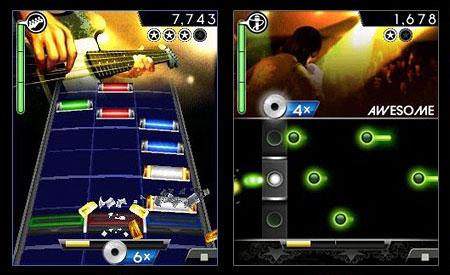
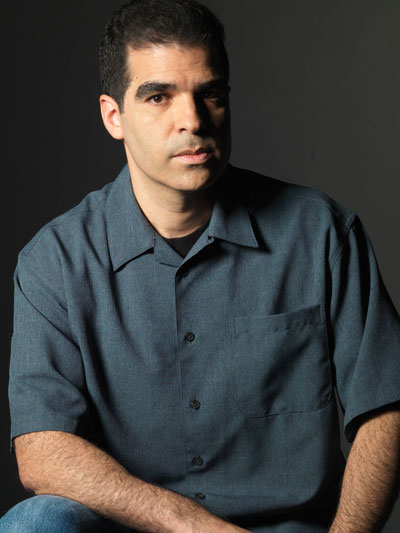

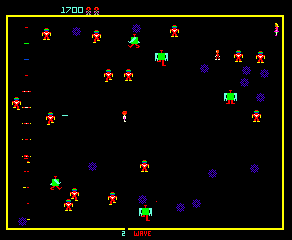


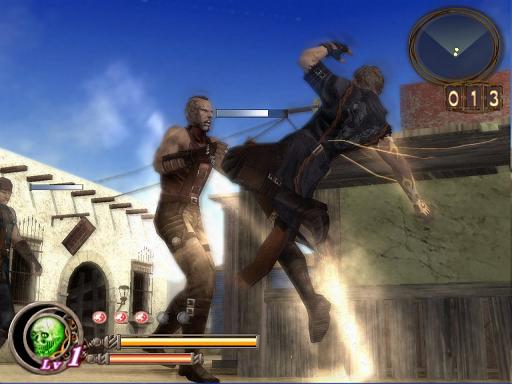
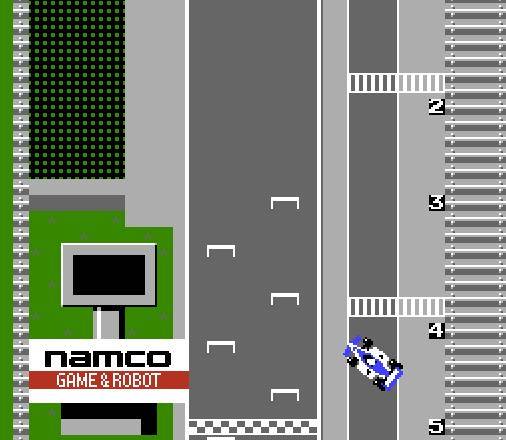

No comments:
Post a Comment